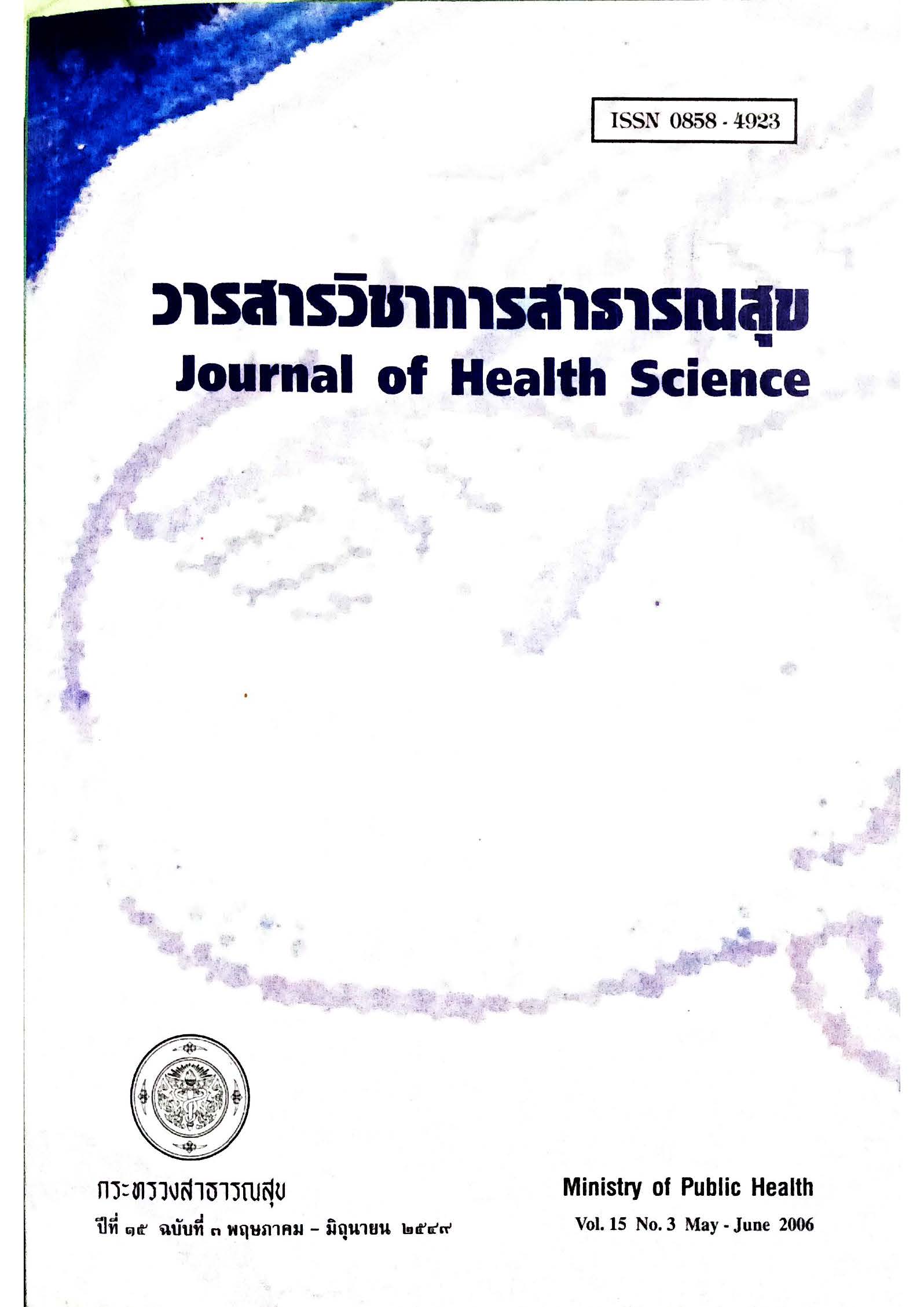Prospective Provider Payment : Efficiency and Quality for Inpatient Care in Public Hospitals in Thailand
Keywords:
prospective payment system, retrospective payment system, length of stay, efficiencyAbstract
Healthcare financing in Thailand has been substantially changed, from a retrospective payment system (RPS) to a prospective payment system (PPS). Before late 2001, only health care services for social security patients (about 7.2% of the total) were pre-paid, leaving the majority to be under a fee-for-service retrospective payment system. Since late 2001, under the Universal Health Care Coverage Project, one of the state main policies, the budget payment mechanism for health facilities, has moved in the opposite direction. Only civil service and state enterprise patients still have been covered by RPS.
In this situation, hospitals received a fixed budget. The study hence, focused on the effects of the changed method of budget payment on the efficiency and quality of inpatient care, and the reduction in length of stay in community, general and regional hospitals in Thailand. This research was combination of three sub-studies: 1) a comparison of the changes to inpatient length of stay and service outcomes, together with analyses of hospital efficiency, 2) an evaluation of the administrative environment of efficient hospitals; the reasons behind reduced length of stay were also analyzed, and 3) an evaluation of opinions about hospital services and the success of their treatment of patients discharged from the efficient hospitals, within a month after discharge.
The study showed that inpatient length of stay under every medical benefit scheme was reduced. Most of the hospitals had not only lower case fatality rates, but also higher early readmission rates. Forty percent had high inpatient service efficiency while the others had moderate and low efficiency levels. The qualitative study in the efficient hospitals revealed that the hospital administrators had strong abilities to adapt their performance. The reduction in average length of stay was caused not only by the intention to reduce costs, but also by efforts on quality improvement. Most discharged patients from the efficient hospitals were satisfied with their treatment outcomes.
This study identified the policy implications of setting up an organization for evaluating and monitoring the efficiency and quality improvement of hospitals. There should be a service agreement between the person paying and the service provider for conscientious improvement in service quality. The hospital must also provide for premature discharge, and co-payments may be required for additional services.
Downloads
Downloads
Published
How to Cite
Issue
Section
License

This work is licensed under a Creative Commons Attribution-NonCommercial-NoDerivatives 4.0 International License.







